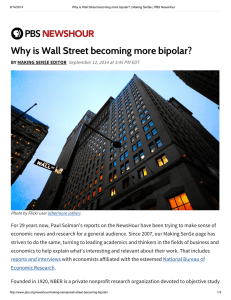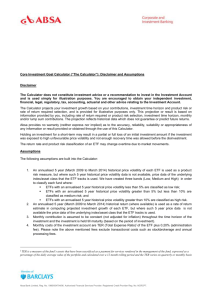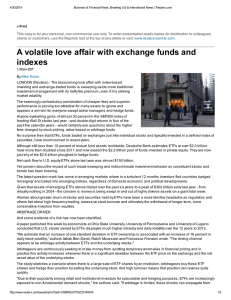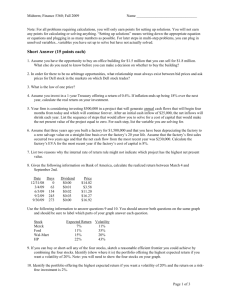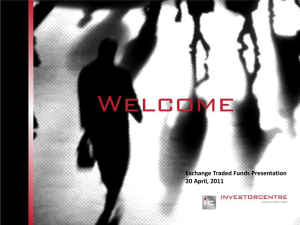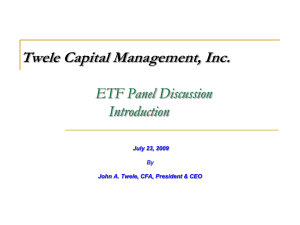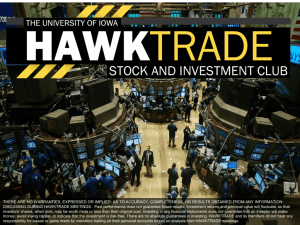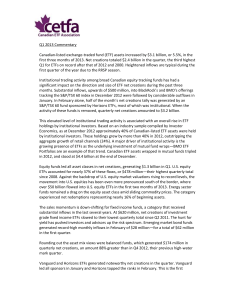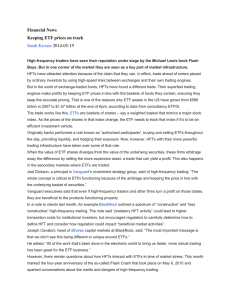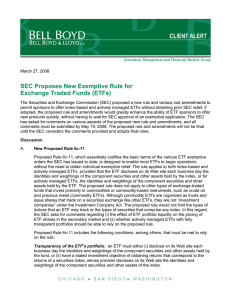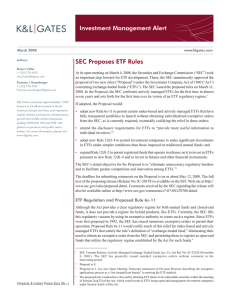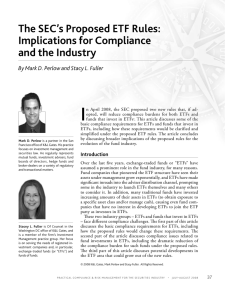NBER Digest Do ETFs Increase Stock Volatility?
advertisement
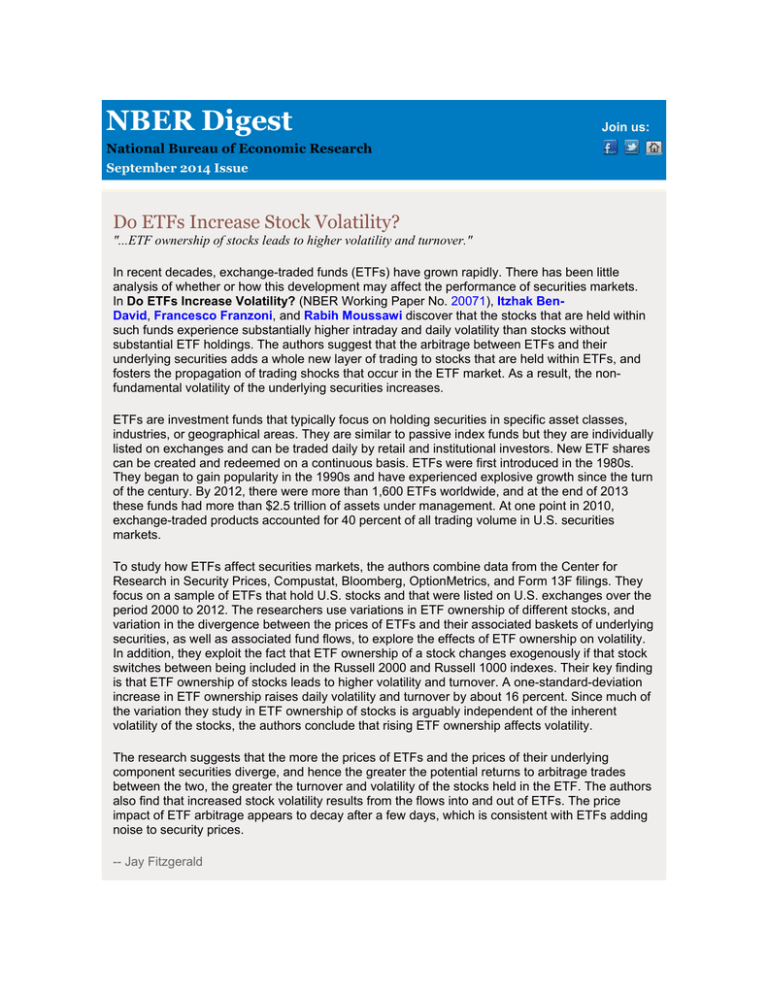
NBER Digest Join us: National Bureau of Economic Research September 2014 Issue Do ETFs Increase Stock Volatility? "...ETF ownership of stocks leads to higher volatility and turnover." In recent decades, exchange-traded funds (ETFs) have grown rapidly. There has been little analysis of whether or how this development may affect the performance of securities markets. In Do ETFs Increase Volatility? (NBER Working Paper No. 20071), Itzhak BenDavid, Francesco Franzoni, and Rabih Moussawi discover that the stocks that are held within such funds experience substantially higher intraday and daily volatility than stocks without substantial ETF holdings. The authors suggest that the arbitrage between ETFs and their underlying securities adds a whole new layer of trading to stocks that are held within ETFs, and fosters the propagation of trading shocks that occur in the ETF market. As a result, the nonfundamental volatility of the underlying securities increases. ETFs are investment funds that typically focus on holding securities in specific asset classes, industries, or geographical areas. They are similar to passive index funds but they are individually listed on exchanges and can be traded daily by retail and institutional investors. New ETF shares can be created and redeemed on a continuous basis. ETFs were first introduced in the 1980s. They began to gain popularity in the 1990s and have experienced explosive growth since the turn of the century. By 2012, there were more than 1,600 ETFs worldwide, and at the end of 2013 these funds had more than $2.5 trillion of assets under management. At one point in 2010, exchange-traded products accounted for 40 percent of all trading volume in U.S. securities markets. To study how ETFs affect securities markets, the authors combine data from the Center for Research in Security Prices, Compustat, Bloomberg, OptionMetrics, and Form 13F filings. They focus on a sample of ETFs that hold U.S. stocks and that were listed on U.S. exchanges over the period 2000 to 2012. The researchers use variations in ETF ownership of different stocks, and variation in the divergence between the prices of ETFs and their associated baskets of underlying securities, as well as associated fund flows, to explore the effects of ETF ownership on volatility. In addition, they exploit the fact that ETF ownership of a stock changes exogenously if that stock switches between being included in the Russell 2000 and Russell 1000 indexes. Their key finding is that ETF ownership of stocks leads to higher volatility and turnover. A one-standard-deviation increase in ETF ownership raises daily volatility and turnover by about 16 percent. Since much of the variation they study in ETF ownership of stocks is arguably independent of the inherent volatility of the stocks, the authors conclude that rising ETF ownership affects volatility. The research suggests that the more the prices of ETFs and the prices of their underlying component securities diverge, and hence the greater the potential returns to arbitrage trades between the two, the greater the turnover and volatility of the stocks held in the ETF. The authors also find that increased stock volatility results from the flows into and out of ETFs. The price impact of ETF arbitrage appears to decay after a few days, which is consistent with ETFs adding noise to security prices. -- Jay Fitzgerald
